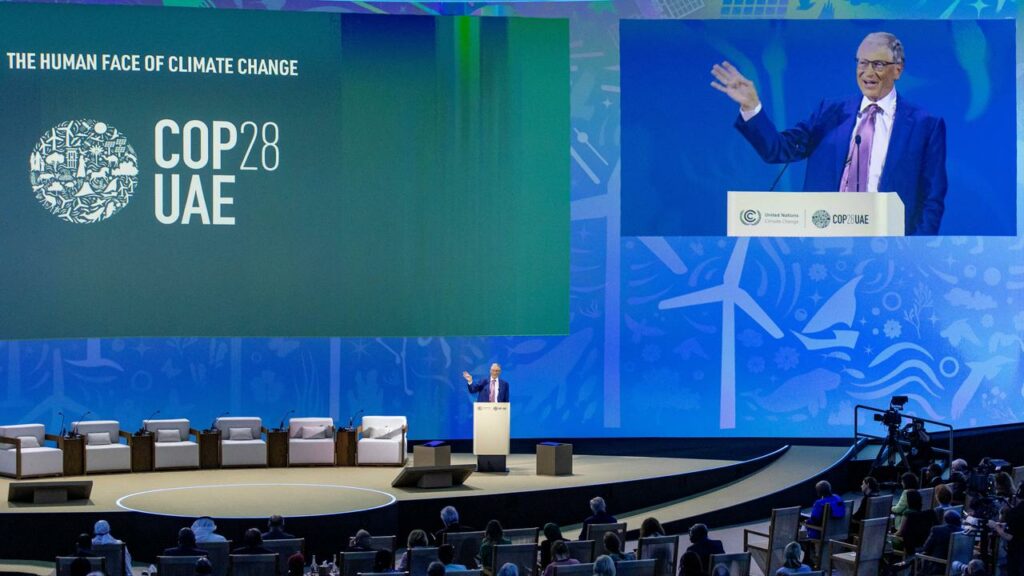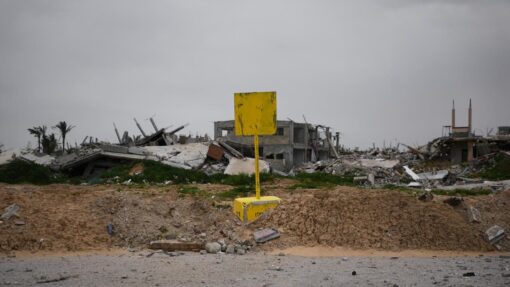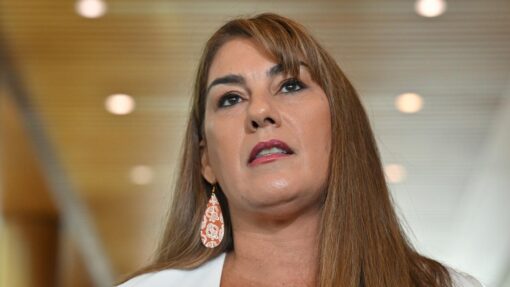Climate finance takes centre stage at COP28 summit
Simon Jessop, Maha El Dahan and Hadeel Al Sayegh |

Money pledges are grabbing the spotlight at COP28 in Dubai as delegates turn their focus to the yawning gap in how much climate finance is needed and what’s on offer.
The United Arab Emirates, host of this year’s conference, pledged $US270 billion ($A406 billion) in green finance by 2030 through its banks, and several development banks made fresh moves to scale up their funding efforts, including by agreeing to pause debt repayments when disaster strikes.
But leaders of the region’s biggest economy and the world’s biggest oil producer Saudi Arabia have so far not attended the United Nations summit, in sharp contrast to their participation in last year’s COP27 conference in Sharm el-Sheikh, Egypt.
On Monday, Prince Abdulaziz bin Salman, energy minister and the key climate negotiator, for the kingdom, was a no-show at the Saudi Green Initiative.
De facto ruler Crown Prince Mohammad bin Salman also did not deliver a speech to world leaders as scheduled on Friday.
The amount of cash needed for the energy transition, climate adaptation and disaster relief is overwhelming.
A report released on Monday estimated that emerging markets and developing countries will need $US2.4 ($A3.6) trillion a year in investment to cap emissions and adapt to the challenges posed by climate change.
“The world is not on track to realise the goals of the Paris Agreement,” said co-author Nicholas Stern, chair of the Grantham Research Institute on Climate Change and the Environment.
“The reason for this failure is a lack of investment, particularly in emerging markets and developing countries outside China.
“The central challenge is to accelerate and implement the fostering and financing of this investment from a range of sources.”
Vulnerable countries that are already being hit by costly climate disasters are asking for billions more through a newly formed disaster fund, although current pledges are only about $US700 million ($A1.1 billion).
“Unless we have an urgent set of decision-making, we are going to suffer what every parent suffers from – exciting expectations and being unable to deliver,” said Barbados Prime Minister Mia Mottley, who has become a prominent voice in global discussions about mobilising climate finance.
In a news conference, she urged countries to go beyond voluntary pledges and pleas to charities and private investors and instead to consider taxes as a way to boost climate funding.

A global 0.1 per cent tax on financial services, for example, could raise $US420 billion ($A631 billion), she said, while a 5.0 per cent tax on global oil and gas profits in 2022 would have yielded about $US200 billion ($A301 billion).
“The planet needs global governance not in a big stick way, but in a simple way of us co-operating with each other to be able to work with the institutions that we have,” she said.
Activists with the Asian Peoples’ Movement on Debt and Development said they worried the sums pledged would be inadequate.
“The climate finance that they have pledged at this COP28 is simply not enough,” said Pakistani activist Zaigham Abbas, whose country was devastated last year by widespread flooding.
“We are not looking for charity here.
“We are not looking for peanuts … The scale of the catastrophe that we are staring is unprecedented.”
The biggest pledge on Monday came from the UAE’s banking system, joining peers in other regions in pledging to lend more to green projects.
It followed a Friday pledge of $30 billion for climate-related projects from the oil-producing Gulf state.
Elsewhere, France and Japan said they would support a move by the African Development Bank to leverage IMF Special Drawing Rights for climate and development.
Reuters


